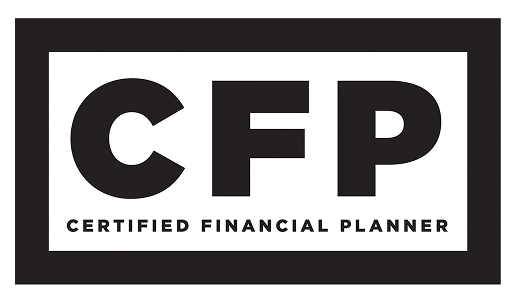You Believe You’ve Done All The Right Things.
Now What?
I focus on your financial well-being – because your money is just one part of the story.
Let’s figure out what’s next, together.
If You’re Wondering Why Me…
Life’s complicated enough. Your finances shouldn’t add to the stress.
I’m not here to judge your choices or overwhelm you with charts and jargon.
I’m here to help you make sense of your financial life – no matter how complex it feels right now.
Maybe you’re asking yourself:
Can I retire now?
Have I saved enough for my kids’ education?
Am I even doing this right?
Those are exactly the kinds of questions I help answer. I’ll guide you through the process, get everyone on the same page, and help you move forward with clarity and confidence.


Financial Planning Services
You’ve saved for the future - now what?
Building wealth is just the beginning. Now it’s time to make sense of it all:
how to protect it, grow it even when you’re no longer adding to it, and align it with
the life you actually want.
I’ll work with you to create a personalized strategy that brings direction, simplicity,
and financial peace to your future.
Explore My Services
| Core Services | Comprehensive Services | Advanced Services | |
|---|---|---|---|
| Asset Requirement | $2M+ | $3M+ | $5M+ |
| Best For | Building a strong financial foundation | Long-term strategy and wealth growth | Complex financial situations and legacy planning |
| What You Get |
|
|
|
Make your money do more so you stress less.

Hi, I’m Jessica Lanning.
I’m not your typical financial planner. For nearly 30 years, I’ve been helping clients make smart, grounded decisions about their money. With a background as an attorney, I bring a clear-eyed, practical approach to even the most complex financial situations – because life isn’t simple, and your finances shouldn’t be handled like they are.
My goal is to help you stop guessing and start feeling confident about your financial future.
I’m not just here to hand you a plan and wish you luck. I’m here to ask the questions that matter, figure out what’s working and what’s not, and build a strategy that fits your life – no one else’s. Whether you’re making big decisions about retirement, your family, or your next investment, I’ll be your financial thinking partner every step of the way.
- Certified Financial Planner
- Former Attorney
- Mother and Business Owner
You don’t have to navigate this alone. I’m here to help you make confident, informed decisions.
FAQs
Where can I find your Google reviews?
Because I am regulated by California and Utah, which have not adopted the SEC’s guidance permitting client reviews, I’ve been advised not to request or display reviews from clients online. However, references are available upon request, and I’m happy to connect you directly with clients who can share their experiences working with me.
When should I start working with a financial planner?
The right time is when you’re feeling stuck – when your research is leading to more questions than answers, or you’re questioning whether your current strategy is good enough. Sometimes, it’s just a gut feeling that it’s time to get a second opinion.
For many of my clients, that moment comes when they:
- Realize retirement is closer than they thought and want to know if they’re prepared.
- Start making more money than ever and feel the pressure not to mess it up.
- Face big financial transitions, like buying a home or sending kids to college.
- Worry that their current investment strategy might not be the smartest move.
If your instincts are telling you it’s time to talk, listen to them. It’s always better to get clarity sooner rather than later.
What is the process for working with you?
To get started, please complete this questionnaire so we can get a sense if we are potentially a good fit for working together. Our office will then be in contact with you to set up a no-cost, one-hour introductory call. By the end of that call, we will both decide if it makes sense for us to continue talking or if we should find you another resource.
If you choose to move forward with me, we will talk about next steps.
What’s your approach to investing?
My investment philosophy is simple: Start early, stay flexible, and minimize risks where possible. It’s not about chasing the highest returns—it’s about making sure your money works for you without putting your future in jeopardy.
- Purpose-driven investing: Your investments should have a clear reason behind them. Whether it’s retirement savings, college funds, or building wealth, we start by defining your goals.
- Minimizing taxes: We look for ways to reduce your tax burden, from tax-free retirement income to strategic withdrawals.
- Flexibility and adaptability: Life doesn’t follow a script. Plans need room to adapt without causing unnecessary stress or losses.
- Diversification without the overwhelm: No one should be locked into a single philosophy or approach. We build a balanced strategy that spreads risk without overcomplicating things.
Can you help defer capital gains on my assets?
Yes. I’m a member of the Estate Planning Team, and we specialize in helping clients defer capital gains on highly appreciated assets—like businesses, real estate, or even artwork—without using a 1031 exchange.
This means you can manage your wealth efficiently and keep more of what you’ve earned without worrying about complicated tax consequences.
How do you tailor financial plans to my unique situation?
How do you tailor financial plans to my unique situation?
I don’t believe in one-size-fits-all financial planning. Your goals, your values, and your lifestyle all play a role in shaping your strategy. That’s why I start with questions that matter to you—not just the numbers on a spreadsheet.
Whether you’re navigating retirement, managing an inheritance, or planning for your kids’ future, I’ll take the time to understand where you’re coming from and where you want to go. We’ll build a strategy that’s personalized, flexible, and aligned with your values—so you feel confident every step of the way.
How often will we review my financial plan?
Life changes, and so should your financial plan. I don’t just create a strategy and forget about it—I’m here for the long haul. We’ll schedule regular performance reviews to make sure your plan stays aligned with your life.










